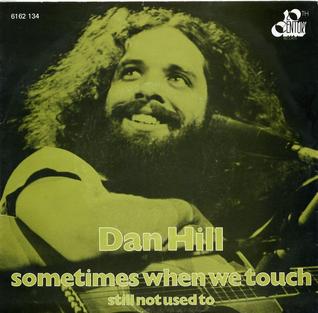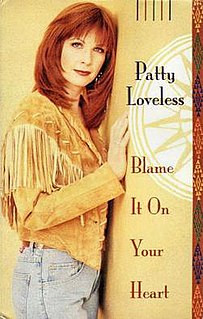
House of Pain was an American hip hop group who released three albums in the 1990s before lead rapper Everlast left to pursue his solo career. The group's name is a reference to the H.G. Wells novel The Island of Dr. Moreau, a reference carried further by the naming of their 2011 tour "He Who Breaks the Law". The group is best known for its 1992 hit single "Jump Around", which reached No. 3 in their native United States, No. 6 in Ireland and No. 8 in the United Kingdom. The group broke up in 1996 but reformed in 2010, after the trio had been members of supergroup La Coka Nostra for several years.

Randall Stuart Newman is an American singer-songwriter, arranger, composer and pianist who is known for his distinctive voice, mordant pop songs and film scores.

David "Honeyboy" Edwards was a Delta blues guitarist and singer from Mississippi.

Hariharan is an Indian playback and ghazal singer, whose songs have been featured mainly in Tamil, Hindi, Malayalam, Kannada, Marathi, Bhojpuri and Telugu films. He is an established ghazal singer and one of the pioneers of Indian fusion music. In 2004, he was honoured with the Padma Shri by the Government of India and is a two-time National Award winner.

"Wrong Way" is a 1997 single from Sublime's 1996 third album, Sublime that fits squarely within the punk rock-inspired third wave ska movement of the 1990s. The song reached number 47 on the Billboard Hot 100 Airplay chart and it spent 26 weeks on Billboard's Alternative Songs chart, peaking at number 3.

"Sometimes When We Touch" is a 1977 ballad written by Dan Hill (lyrics) and Barry Mann (music) on the album Longer Fuse and also released that year as a single. It was Hill's biggest hit, peaking at #3 on the United States Billboard Hot 100 and #10 on the Adult Contemporary chart. Musicians included Bobby Ogdin (piano), Larrie Londin (drums), Bob Mann (guitar), Don Potter (guitar), Tom Szczesniak (bass). The record was produced by Fred Mollin and Matthew McCauley, recorded at Manta Sound, Toronto.

"Smokin' in the Boys Room" is a song originally recorded by Brownsville Station in 1973 on their album Yeah! It reached number 3 in Canada and on the US Billboard Hot 100, and was later certified by the RIAA.

MK III: The Final Concerts, alternatively entitled Archive Alive, is a live album by Deep Purple, recorded during the band's 1975 European tour in support of the Stormbringer album. It was released in 1996.
"Motherless Child Blues" is the name of two distinctly different traditional blues songs. They are different melodically and lyrically. One was first popularized by Robert "Barbecue Bob" Hicks, the other by Elvie Thomas.

"Red Right Hand" is a 1994 song by Nick Cave and the Bad Seeds. It first appeared on the album Let Love In, where it ran at over six minutes. A condensed version was later released as a single.

Sri Raghavendrar is a 1985 Tamil devotional-biographical film directed by S. P. Muthuraman and was produced by Kavithalaya Productions. The film stars Rajinikanth, portraying the title character, in the lead. Lakshmi, Vishnuvardhan, Delhi Ganesh and Nizhalgal Ravi play prominent roles. The film is based on the life of Hindu saint Raghavendra Swami. The soundtrack was composed by Ilaiyaraaja and lyrics were written by Vaali. The dialogues for the film were written by A. L. Narayanan.
"La-La " is an R&B/soul song by American vocal group The Delfonics. Released on January 26, 1968 by Philly Groove Records, the song was written by Thom Bell and William Hart, and produced by Bell and Stan Watson.

"Burn" is a song by British rock band Deep Purple. Its riff is similar to the 1924 song "Fascinating Rhythm". It was released on the album of the same name in 1974, and was the first song by the Mark III lineup. The song remained the band's concert opener for the next two years, taking over from "Highway Star". It opened Deep Purple's set on the California Jam two months after its release, on 6 April 1974.

"Blame It On Your Heart" is a song written by Harlan Howard and Kostas, and recorded by American country music artist Patty Loveless. It was released in April 1993 as the first single from her album Only What I Feel. A cover version by Deborah Allen was featured prominently in the 1993 film The Thing Called Love.
"John Deere Green" is a song written by Dennis Linde, and recorded by American country music artist Joe Diffie. It was released in November 1993 as the third single from his album Honky Tonk Attitude. The song peaked at number 5 on the country charts.
"Don't Talk 2 Strangers" is a song by Prince, released on his 1996 album Girl 6, the soundtrack to the Spike Lee film of the same name. Vibe magazine claimed the song was "the album's only disappointment". Prince recorded the song in 1992, during sessions for the proposed soundtrack to the film, I'll Do Anything.
"Hasta Que Te Conocí" is a song written, produced, and performed by Mexican singer-songwriter Juan Gabriel. It was released in 1986 as the third single from his studio album Pensamientos. In the song, the protagonist learns the meaning of suffering after meeting a lover who mistreats him. It peaked at number two on the Billboard Hot Latin Song chart. A live version of the song was included on his album En el Palacio de Bellas Artes (1990) which peaked at number ten on the Hot Latin Songs chart.

"Farther Up the Road" or "Further On up the Road" is a blues song first recorded in 1957 by Bobby "Blue" Bland. It is an early influential Texas shuffle and features guitar playing that represents the transition from the 1940s blues style to the 1960s blues-rock style. The song became Bland's first record chart success and one of his best-known tunes. "Farther Up the Road" has been performed and recorded by numerous blues and other artists, including Eric Clapton who has made it part of his repertoire.













